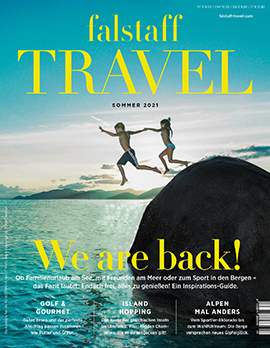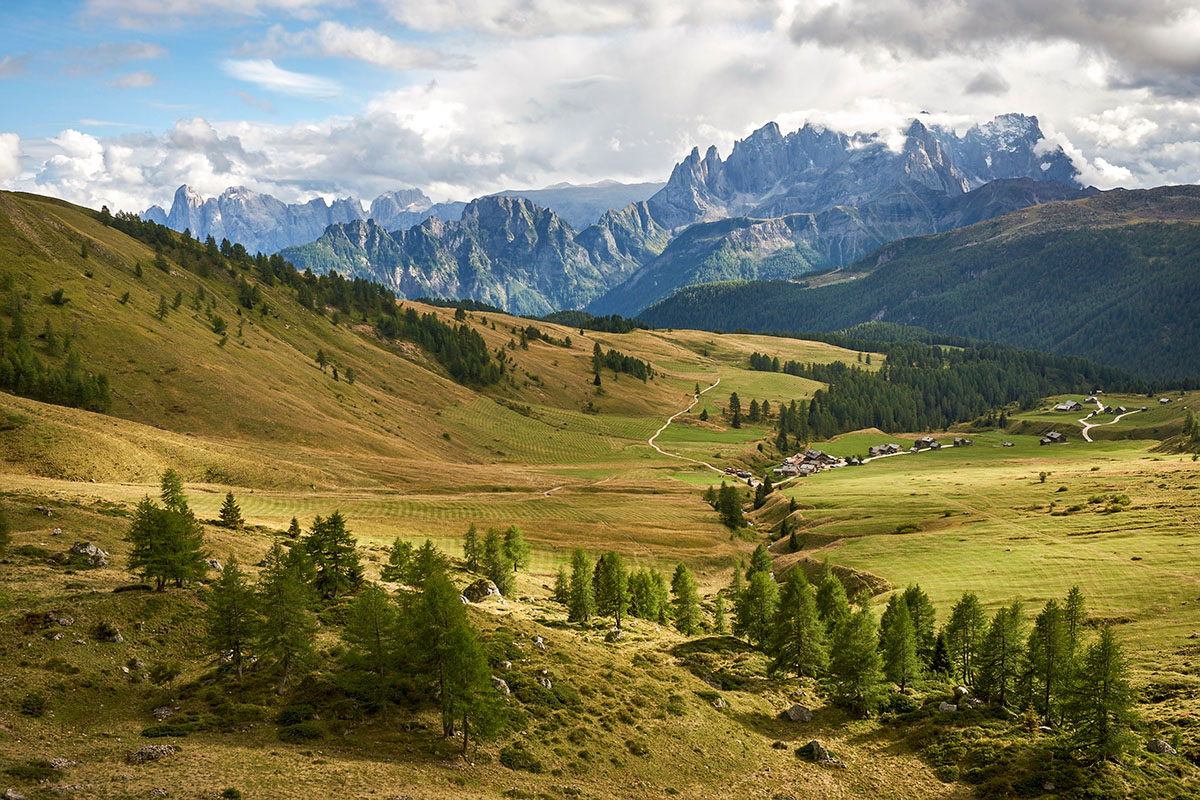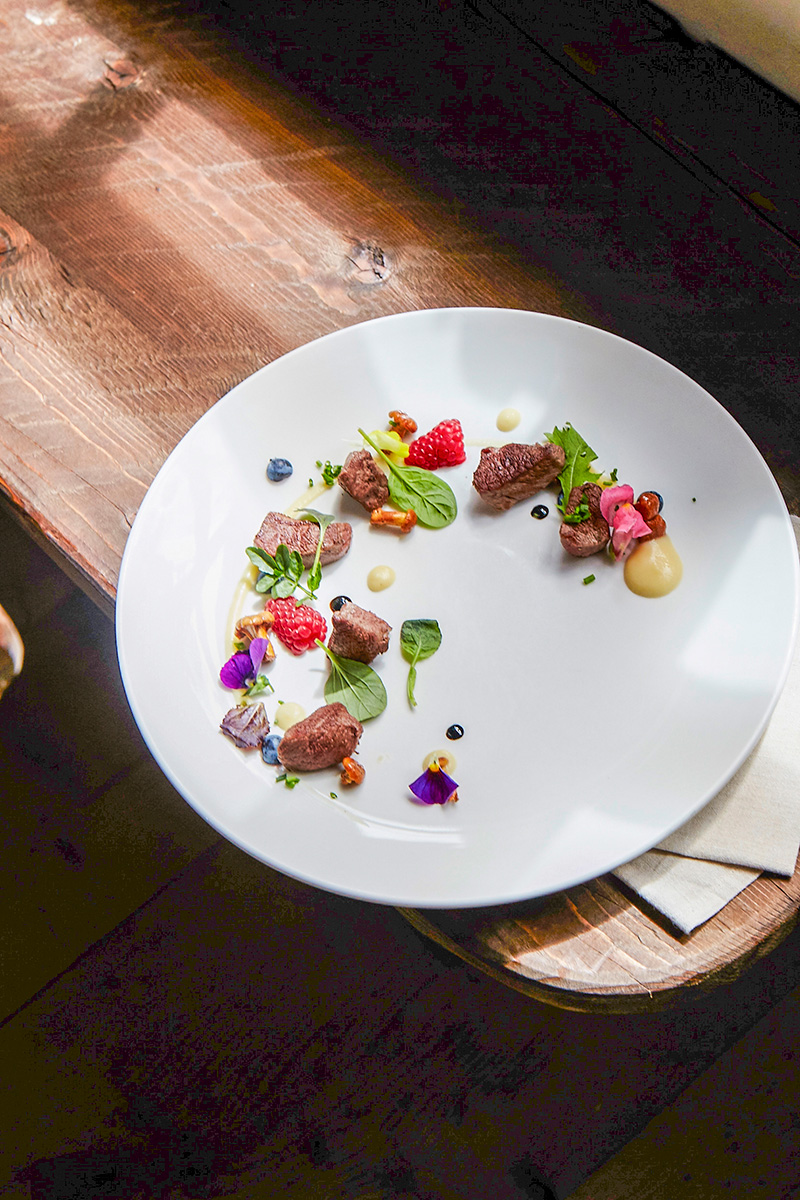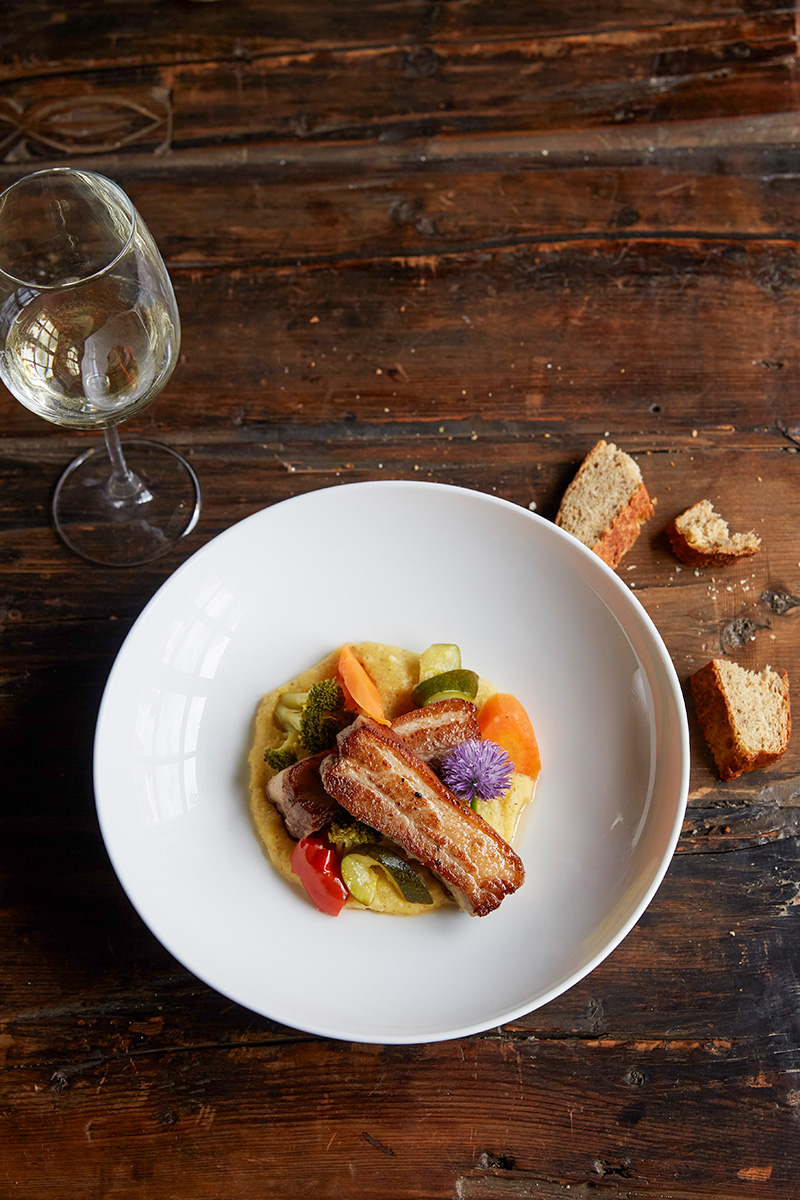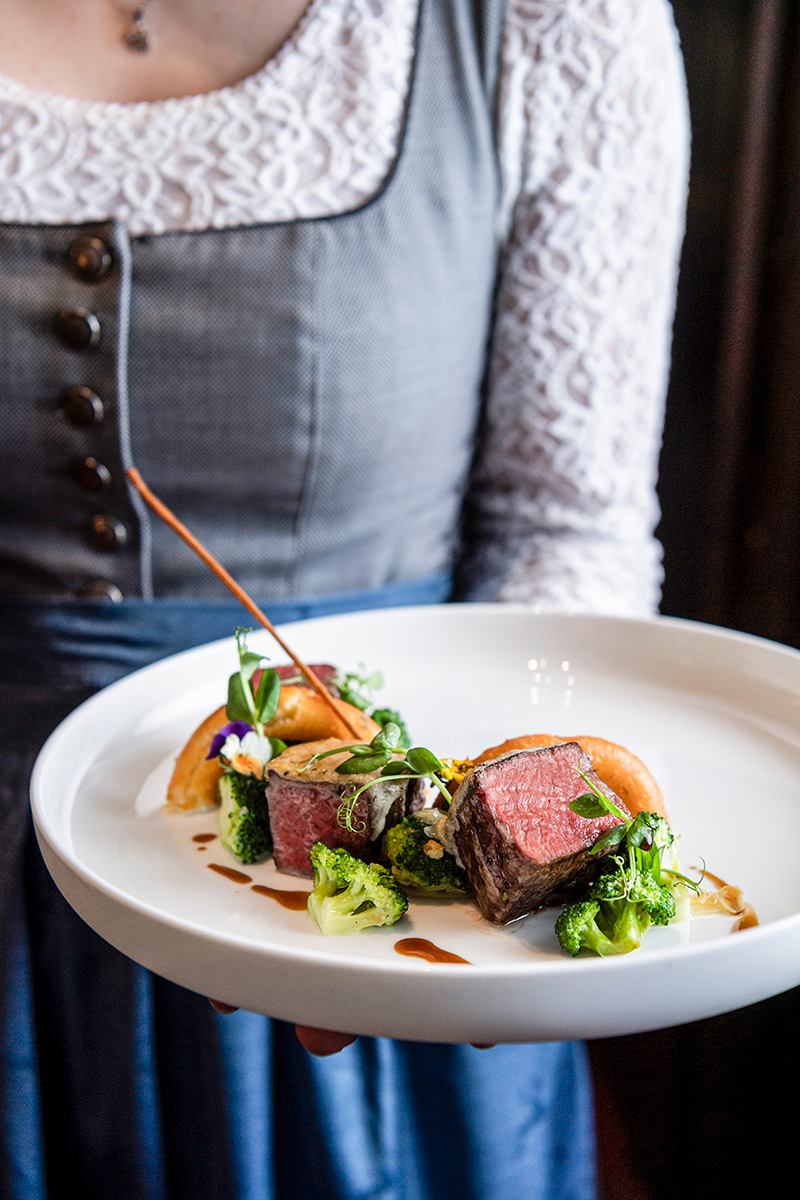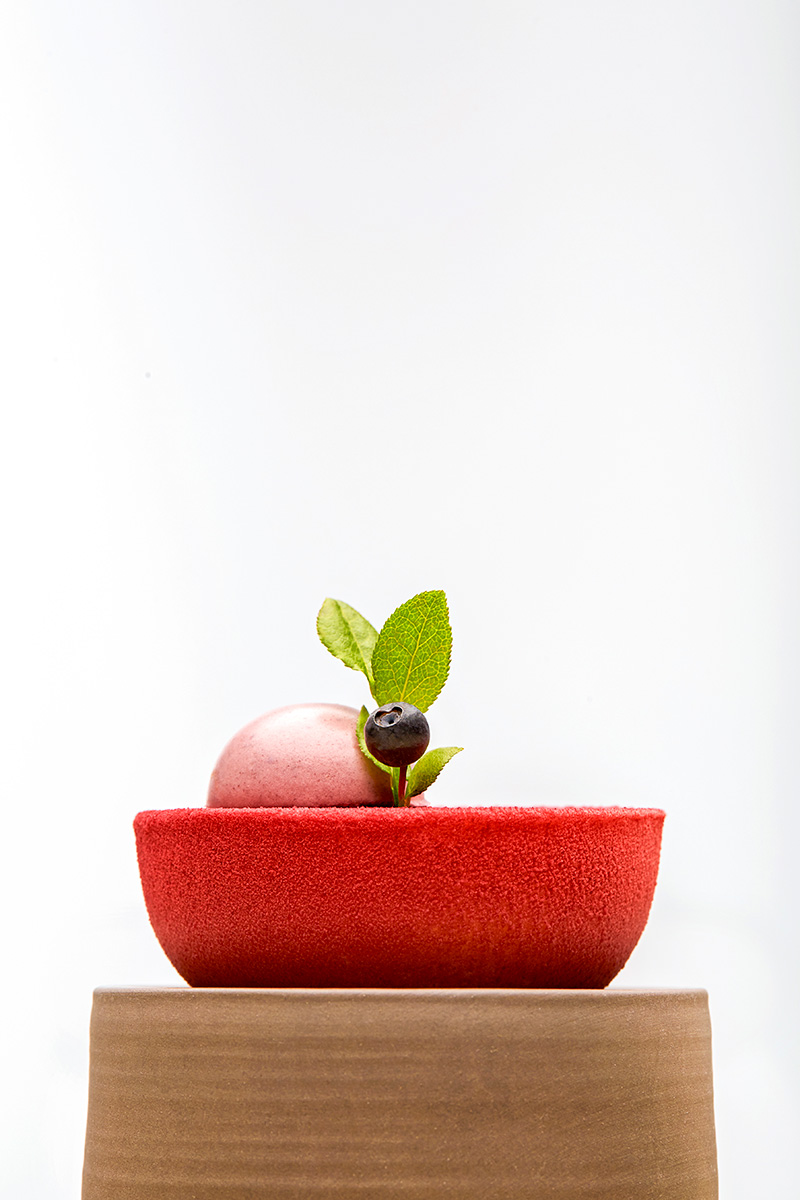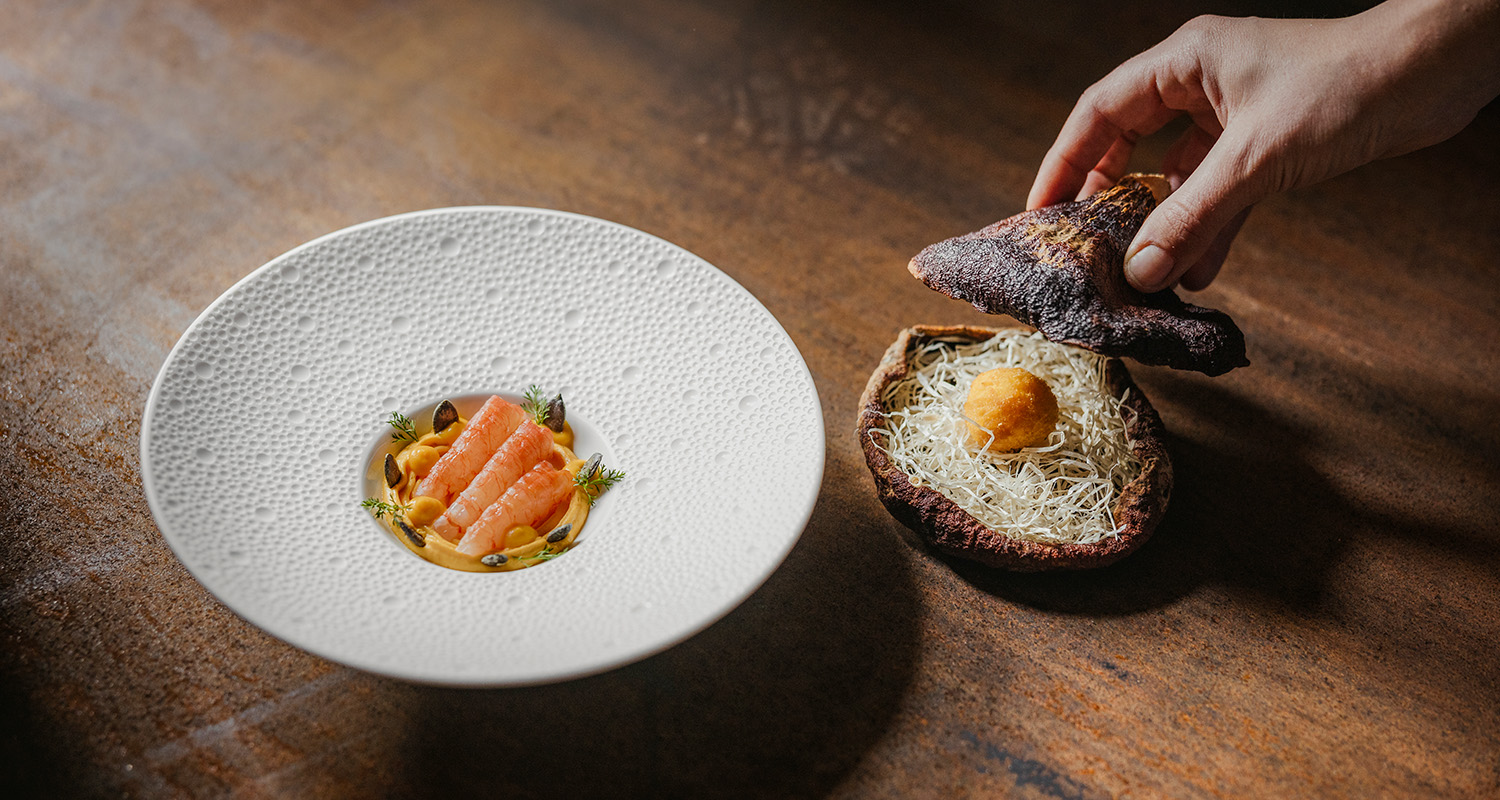
The Taste of South Tyrol: Enjoyment at the Summit
Whether at fine dining or at the hut: it doesn't taste good without first-class products. South Tyrol relies on slow food that is organic and comes from the region. In this way, culinary traditions are given a contemporary twist.
August 3, 2023
No other region in Italy has a higher density of Michelin stars than South Tyrol. © Christian Kerber
The term transhumance may sound like something out of a science fiction movie, but it has ancient roots. It means, to lead to mountain pasture, you can also say transhumance. You can still experience this principle very concretely in South Tyrol, when cowbells suddenly jingle between grapevines. On the organic vineyard of Alois Lageder, the young cattle of Alexander Agethle spend the fall and winter here - the winemaker has free manure, the dairy farmer cows that get the best feed. A symbiosis of their businesses creates a regional quality from which the environment, animals, but also consumers benefit, because the products simply taste better.
Holistic agriculture
The food at Rifugio Fuciade is inspired by Ladin tradition. © Christian Kerber
Carlo Petrini, founder of the international Slow Food movement, emphasizes that tradition should not be an archaeology, but a continuous innovation. In South Tyrol, it's easy to see what is meant by this. When Alexander Agethle took over his parents' farm in Schleis - a cattle farm and a dairy - in 2000 and converted to organic farming, his neighbors were skeptical. Today, his farm is a success story: his twelve brown cattle cows live in suckler cow husbandry, the cheeses ripen on spruce wood in the cellar, developing their special aroma. His sustainable management is limited to the essentials: Healthy soil produces high-quality fodder, which in turn produces good milk.
"I think it's extremely important for young entrepreneurs to spin and be crazy," Agethle once said in an interview. He hits on a point why South Tyrol is ahead of the game, and not just when it comes to culinary arts: Quality comes before quantity here, stubbornness before greed for profit. It's about respectful treatment of animals and nature - even potato peels can be used to conjure up something delicious, and old fermentation techniques have been rediscovered. There is immense wealth in barrenness, because then all the more creativity is required.
The art of simplicity
Dumpling dishes are available in every form in South Tyrol, they are the ideal refreshment after a hike. ©Alex Filz
The Hotel La Perla in Corvara, advertises on its homepage what it doesn't have: no huge wellness area, no wine from Australia, no marble from Carrara, also fits this idea to a certain extent. "Our focus is on people," says hotelier Michil Costa, whose flamboyant style of dress (jackets in the brightest possible colors) would lead one to expect him to be more in an urban setting. He was a punk, made his way as a DJ in London, ran for the European Parliament as a Green - until he returned to his parents' hotel and opened La Stüa de Michil in La Perla in the 1980s, which has been decorated with a Michelin star since 2002. Here, you dine by candlelight in a parlor made of antique wood.
Alexander Agethle matures his cheese on spruce wood in the cellar. © Franco Cogoli
Looking forward, but not losing sight of the past, this motto is often encountered in South Tyrol; focusing on one's strengths and not imitating others. Such is the case with Norbert Niederkofler, the gentle kitchen rebel: early on, he had a decisive influence on this region, which boasts the highest density of Michelin stars in all of Italy. His cookbook Cook the Mountain is a manifesto for local cuisine and a picture book to dream about, a journey into the mountains and to producers from the region.
At the Rifugio Fuciade looks count as much as the taste: Bacon and vegetables from the region, plus homemade bread. © Christian Kerber
But Roland Lamprecht's Waldküche in Brixen is also spectacular. Where once stood a sanatorium is now a five-star hideaway that celebrates the art of simplicity. The "Forestis Dolomites" is a retreat in the middle of nature, here you dine with a view of the Dolomites. The plates are filled with what the forests of this region have to offer: Mushrooms, berries, herbs, nuts - everything Lamprecht loved to collect with his mother as a child. "What is now hype in many restaurants around the world has always been a matter of course for us South Tyroleans," he emphasizes.
One of the wonders of South Tyrol is that even the simplest huts offer great food - they are called maso or rifugio, they often look like hostels and serve everything from fancy local dishes to haute cuisine. The ingredients come from the region, they are simple and yet are prepared in a refined way. Italian lifestyle continues here in part into the high mountains, and each valley has local specialties, such as Schlutzkrapfen with different fillings or dumplings, sweet or hearty.
Simply Good!
In the Romantik Hotel and Restaurant Stafler you can choose between down-to-earth South Tyrolean dishes and fine dining South Tyrolean style. © Hannes Niederkofler
The less is being used, the better the ingredients must be: ladin cuisine is in vogue because people are just rediscovering how good the former poor people's cuisine tastes. The Gadertaler Gröstl is a perfect recycled dish: hearty ingredients roasted in the pan, plus fresh herbs from the garden. The Rifugio Fuciade in the heart of the Dolomites is one of those gourmet paradises - chef Martino Rossi gathers his ingredients from the surrounding area, his dishes are influenced by Ladin tradition, which he fuses with Italian classics to create works of art on the plate. The reduced and the refined, for Martino they aren't opposites.
Roland Lamprecht's forest kitchen conjures up ice cream from berries that could also be in a museum. © provided
Something similar can be said about the Hotel Villa Arnica in Lana, where everything comes directly from the hotel's own garden. It's regional, organic and kids can see where the food comes from. Marmalade, syrup and spreads are sourced, the garden is an oasis of tranquility. And once again, there's this typical mix that makes South Tyrol so special: vineyards, apple trees and palm trees - Dolce Vita in the mountains.
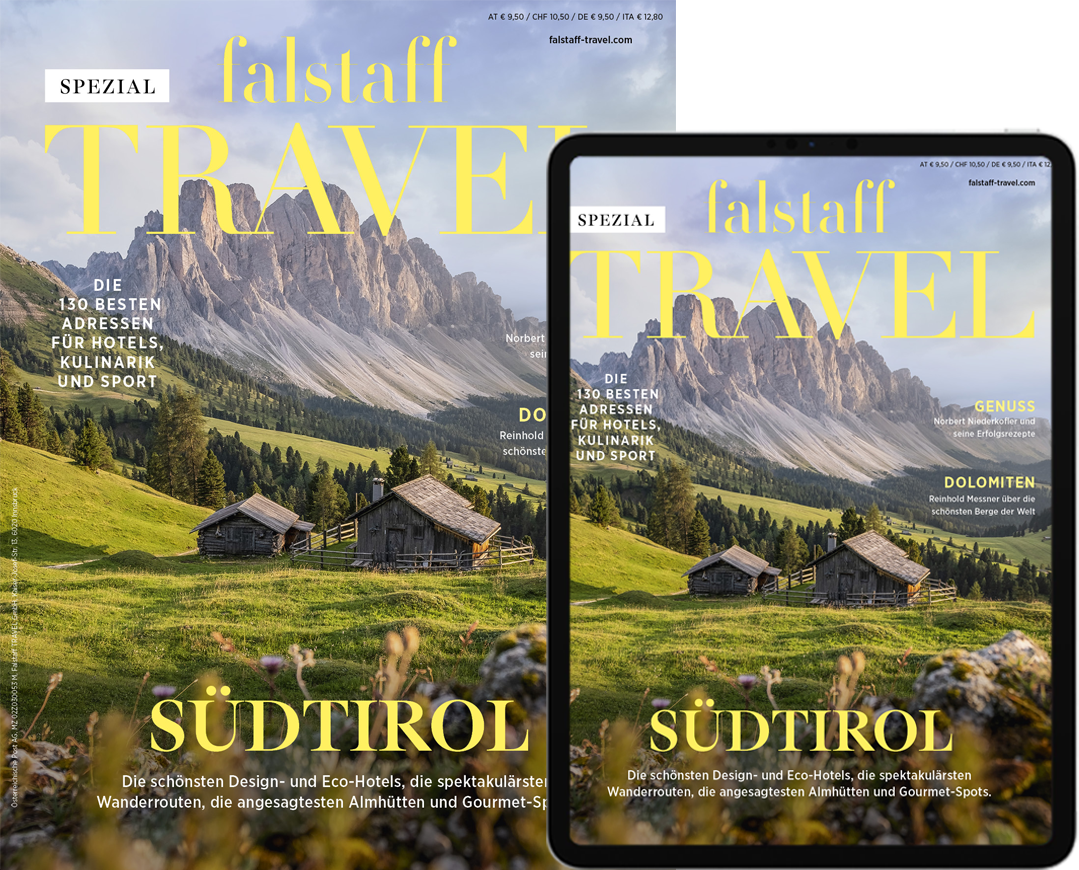
This article appeared in the Falstaff TRAVEL issue South Tyrol Special 2023.
